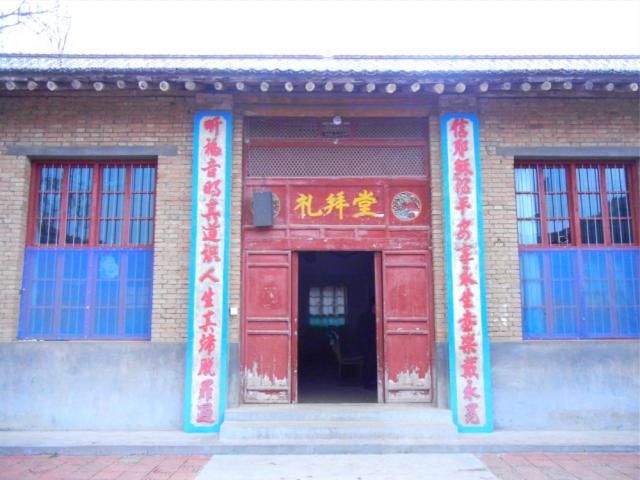Introduction: For rural churches, the busy farming season is all too familiar, but the launch of church ministries after the autumn harvest has always been a concern for almost every rural minister. With this article, I aim to talk about the situation of rural churches after the autumn harvest.
1. Returning to ministry after a busy farming season
Rural churches have a period of rest during the busy farming. Having their own land, believers and ministers use this time to grow crops. Some of them grow corn, soybeans, or vegetables, while some others plant medicinal herbs. In order to do this, rural churches suspend major church ministries to make time for the autumn harvest.
In recent days, the autumn harvest in parts of the Eastern Henan Plain has come to an end, and now cultivation of fields and sowing have just begun. Meanwhile, some churches have begun to resume their ministries.
Ministers of rural churches accept the fact that Christians need to work in the fields to make a living. If the ministers or believers in the countryside do not work hard as non-believers do, it will reflect badly on them and they will be seen as lazy in the eyes of the world. Therefore, ministers in the countryside not only have to carry out the work of the church but also manage the fields well during appropriate seasons.
Although the autumn harvest is drawing to an end, believers and ministers need to quickly adjust their lives so they can resume the ministries, looking after families with hardships, caring for those who are hospitalized, calling upon the elderly and infirm, as well as organizing systematic Bible studies.
2. Coping with physical exhaustion
It is true that farming is quite physically demanding. Lots of manual work is needed and only a few things can be done by machines. Harvest particularly calls for physical exertion as all the crops need to be brought in from the fields.
Many rural believers get up early in the morning and after a long and busy day of hard work in the fields, they may easily doze off during worship and sermon time. Ministers need to help believers to find ways to make sure they can fully engage themselves when they worship and listen to sermons.
3. Reflecting on the Lord’s grace for a good harvest
One of the things for which rural Christians are most grateful is God's blessings to their land and crops.
Although a good harvest will not happen without hard work, God's blessing for the land is imperative for a hundredfold yield.
Christians will come to understand God's grace from the harvest. God provides appropriate weather for crops to grow in their time with regular rain and wind.
In the Bible there is a metaphor of a farmer waiting for the harvest for Christians to learn how to wait on God with patience. The verse goes: " Be patient then, brothers and sisters, until the Lord’s coming. See how the farmer waits for the land to yield its valuable crop, patiently waiting for the autumn and spring rains." (*NIV, Zondervan)
4. Understanding the growth of the gospel from seeding the fields
The end of the autumn harvest also represents the beginning of a new season. The corn crop in eastern Henan has been stored in warehouses, and preparations are underway for the next season of wheat sowing.
Wheat planting has four general steps. The first step is to cultivate the land (including fertilization), the second step is to turn the soil, the third step is to mechanically sow wheat seeds, and the fourth step is to water the fields (or wait for rain). These four steps seem easy, but each step determines the harvest of the coming year.
Although planting wheat is simple and straightforward, the whole process is a test of our patience. Not only must we be able to observe changes in the soil, but also be able to choose high-quality wheat seeds. As a matter of fact, the metaphor of the land is the easiest for the ministers in the countryside to preach about, as it is the one which the rural believers can understand best and is closest to their life.
Using the metaphor of planting seeds to illustrate the detailed steps of evangelism will be easier for believers in rural areas to understand and to comply with. Similar to the four steps of sowing wheat, the four steps to spread the gospel are also summarized. The first is to open up the topic, the second is to share personal testimonies, the third is to introduce the gospel, and the fourth is to wait for God to work in the minds of the listeners.
- Translated by Jacqueline Y











